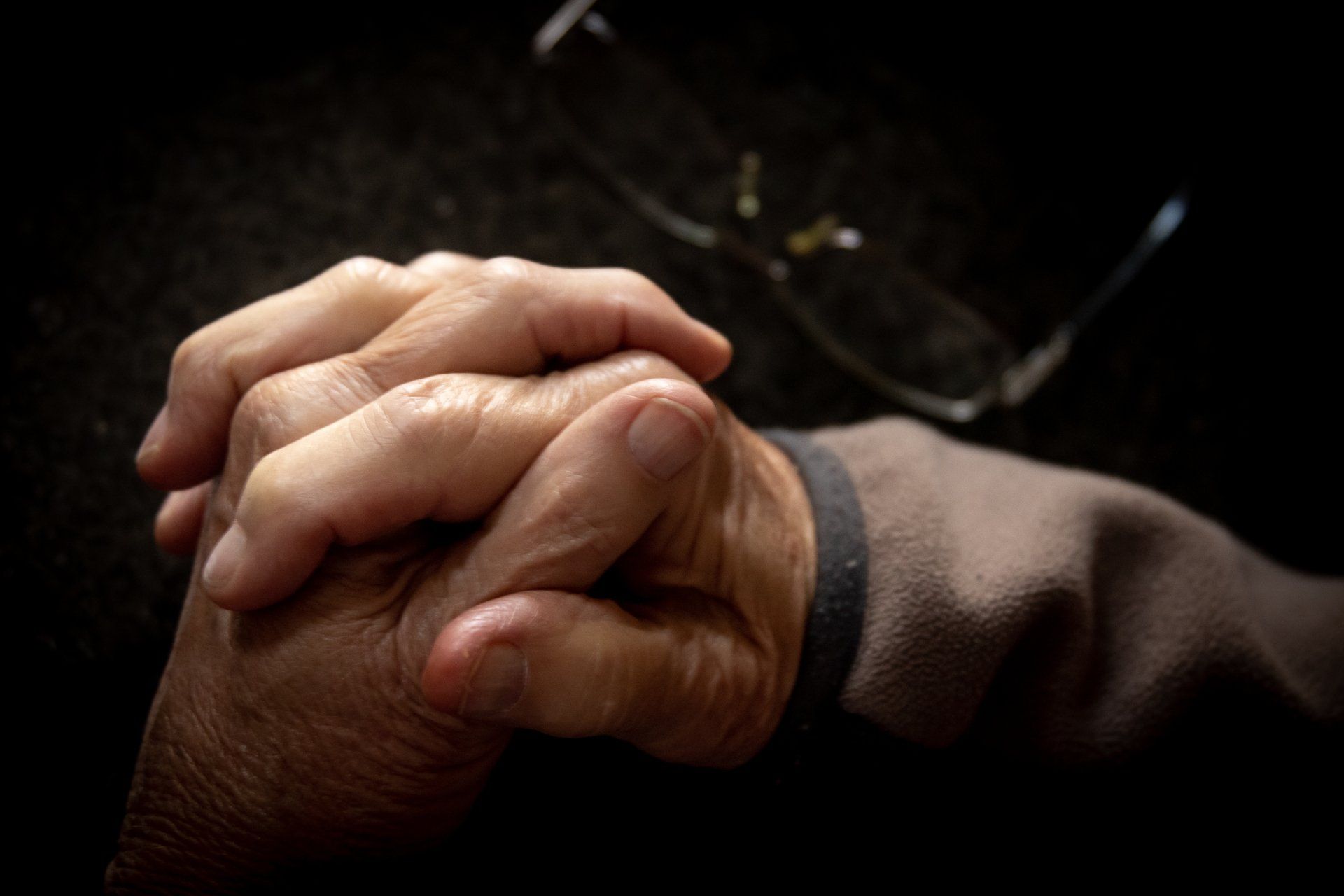Roaming Through Romans Chapter 14
Roaming thorough Romans Chapter 14
Rom 14:1-23 ESV As for the one who is weak in faith, welcome him, but not to quarrel over opinions. (2) One person believes he may eat anything, while the weak person eats only vegetables. (3) Let not the one who eats despise the one who abstains, and let not the one who abstains pass judgment on the one who eats, for God has welcomed him. (4) Who are you to pass judgment on the servant of another? It is before his own master that he stands or falls. And he will be upheld, for the Lord is able to make him stand.
The subject in this chapter again is the great law of love, and how we are to show our love for the family of God by not passing judgment on our fellow believers.
The first thing that Paul talks about here is the person who is weak in the faith. This refers to someone who has recently come to believe the gospel as the only means of salvation from the fierce judgement of God for sin. We are to welcome those who are new to the faith, but we are not to quarrel over opinions, only to teach them the truth if they are open to it.
Next, he talks about food. I have seen many who have come to faith in Christ to have questions over certain foods, in particular pork. To the Jews pork meat is strictly forbidden and seen as unclean. This was one of the Jewish laws under the old covenant. In Christ all foods are acceptable if received with thanksgiving because they have been made clean by God.
However, if someone insists on abstaining from certain foods, Paul’s teaching is that the person who feels free to eat whatever they wish is not to despise or think differently of the one who would not eat certain foods. Any in any case he says, who are you to pass judgement on those who belong to Christ. The God who called that person into his own family is able to keep him, is able to bring him into the fullness of His plan for his life.
Rom 14:5-7 One person esteems one day as better than another, while another esteems all days alike. Each one should be fully convinced in his own mind. (6) The one who observes the day, observes it in honor of the Lord. The one who eats, eats in honor of the Lord, since he gives thanks to God, while the one who abstains, abstains in honor of the Lord and gives thanks to God.
The same applies to setting certain days aside in honour of God. For one person this may be Sunday, for others it may be Saturday, or any other day of the week, while still others may observe every day as holy to the Lord. Whether you see one day as better than any other, be fully convinced in your own mind about this, and be convinced without seeing the need to convince someone else how right you are. If you see all days the same, don’t pass judgment on the one who sets one day above the rest, for just as you honour the Lord by observing all days as holy, another person honours God by keeping one day above the rest.
The same applies to food, whether a person eats all foods, or abstains from certain foods for religious reasons, they both give thanks to God and they both honour the Lord in their own way.
Rom 14:7-9 For none of us lives to himself, and none of us dies to himself. (8) For if we live, we live to the Lord, and if we die, we die to the Lord. So then, whether we live or whether we die, we are the Lord's. (9) For to this end Christ died and lived again, that he might be Lord both of the dead and of the living.
When we commit our lives to Christ, we no longer live for ourselves, but for Christ, and when we die we belong to Him in a complete way. Christ died and he rose from the dead, so he is Lord of both the living and the dead. So, whether we live of die, we do it to the Lord as we are his.
Rom 14:10 Why do you pass judgment on your brother? Or you, why do you despise your brother? For we will all stand before the judgment seat of God; (11) for it is written, “As I live, says the Lord, every knee shall bow to me, and every tongue shall confess to God.” (12) So then each of us will give an account of himself to God. (13) Therefore let us not pass judgment on one another any longer, but rather decide never to put a stumbling block or hindrance in the way of a brother.
Paul brings us back to judgment again with the reminder that we will all stand before the judgement seat of Christ. Therefore, we don’t need to judge others, God will do that, and he is the merciful judge. Passing judgment can put an obstacle in the path or be a hindrance in the way of someone who is trying to come to know more about Christ. This doesn’t mean that we are not to point others to the truth, it is more speaking about superficial things, like rules and regulations that are not in scripture, or such things as personal likes or dislikes. “This is the way we do things here and you must comply.” We are not to put anything in the path of another that would cause them to be drawn away from following Christ.
Rom 14:14-16 I know and am persuaded in the Lord Jesus that nothing is unclean in itself, but it is unclean for anyone who thinks it unclean. (15) For if your brother is grieved by what you eat, you are no longer walking in love. By what you eat, do not destroy the one for whom Christ died. (16) So do not let what you regard as good be spoken of as evil.
Here this idea of not judging what others eat or would abstain from eating, is taken to a whole different level. First, Paul affirms to us that, as far as Christ is concerned, nothing we eat is of itself unclean, it only becomes unclean to the one who thinks it is unclean and unfit to eat. But here’s where Paul tells us that we should go a step further because of this law of love. If a believer is grieved or upset because of something you eat, then you are not walking in love. Therefore, we are not to let something that we see as good be spoken of as evil.
Rom 14:17- For the kingdom of God is not a matter of eating and drinking but of righteousness and peace and joy in the Holy Spirit.
This is the theme that runs throughout all the NT teachings. The Old Testament law was a matter of rules and regulations, don’t touch this, don’t eat that, but the kingdom of God, introduced by Jesus, is not about any of this, it is about righteousness, which is being in right standing with God. This is not something that we can achieve by any of our doing, it is something that is given to us freely by God the moment we believe that Christ died and was raised to life for our sin. God the Father made Jesus the Son who had no sin to become sin so that anyone who would believe in him would become the righteousness of God. Jesus lived a perfect life but was punished as a criminal and took the punishment for all of mankind’s sin on the cross.
His sacrifice paid for the sins of mankind in such a way that now God is not even recording mans’ sins against him. Why would God decide not to keep a record of our wrongdoing. Because it would be a useless exercise. If God were to keep a record of our sins, there is nothing he could do with it. He couldn’t punish us for our sins because Jesus already received that punishment. It would be like someone who spent time in prison for theft and when he comes out you go about telling him about the crimes he committed. He has paid for his crime, and he cannot pay a second time, no matter how detailed a record you have of his crime.
This is why God no longer records our sins against him, Christ paid for our sins and he cannot pay a second time no matter how detailed a record is kept. All he asks is that we believe in his sacrifice, and the moment we do we are reconciled to him forever. Anyone who refuses to believe will never be reconciled to God in this life and will remain separated from him for all eternity.
The kingdom of God is also about peace, the peace of God, through Christ the prince of peace living in us. Anxiety and fear are the opposite of peace, but God gives us the anti-dote to this.
Php 4:6-7 ESV do not be anxious about anything, but in everything by prayer and supplication with thanksgiving let your requests be made known to God. (7) And the peace of God, which surpasses all understanding, will guard your hearts and your minds in Christ Jesus.
Don’t allow yourself the luxury of being anxious about anything, and the anti-dote – in everything, pray and give thanks to God, then let him know what you need. If you do this, God promises that His peace, which is beyond man’s understanding, will be a guard on your heart and your minds in Christ Jesus.
The third thing that the kingdom of God is about is joy in the Holy Spirit. This is happiness brought about by the Holy Spirit and maintained by Him. This joy springs from the knowledge of God’s mercy; his love being poured into our hearts by His Spirit.
Rom 14:18-23 Whoever thus serves Christ is acceptable to God and approved by men. (19) So then let us pursue what makes for peace and for mutual upbuilding. (20) Do not, for the sake of food, destroy the work of God. Everything is indeed clean, but it is wrong for anyone to make another stumble by what he eats. (21) It is good not to eat meat or drink wine or do anything that causes your brother to stumble.
(22) The faith that you have, keep between yourself and God. Blessed is the one who has no reason to pass judgment on himself for what he approves. (23) But whoever has doubts is condemned if he eats, because the eating is not from faith. For whatever does not proceed from faith is sin.
When we serve Christ in live without judgment, we are acceptable to him, not only that but we are also approve by man. The message is love for others, especially the family of God. We are to pursue the things that promote peace and build each other up. Don’t do anything that would make another stumble.
Finally, keep your faith between yourself and God and give your conscience no reason to pass judgment on yourself. The last verse is in relation to doing something that you believe is not permitted. We saw earlier that nothing is unclean unless a person thinks it is unclean. So, for example, if there is some food that you are convinced should not be eaten, and you go ahead and eat it, this is what Paul is talking about. Whoever has doubts about what he eats is condemned already, because his eating is not from faith, and whatever does not proceed from faith is sin.
The same applies to anything you do. A personal example, if I’m watching something on TV and I hear offensive language, I change the channel. Does this mean that I’m holier than thou, or super-spiritual. No, it just means that I’m convinced in my heart that I should not expose my spirit to the use of bad language. If I continued to watch something when I know it contains offensive language, then it would be contrary to my faith, and my conscience would condemn me. Do I judge someone else who would not seem to have a problem with this, no. I keep my faith on this issue between me and God, and as result I give my conscience no reason to pass judgment on me by what I approve.
That’s it for tonight.










